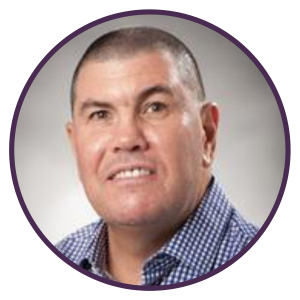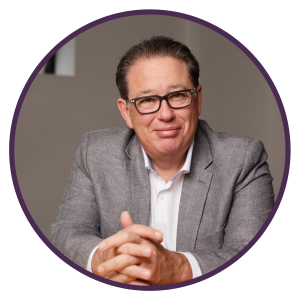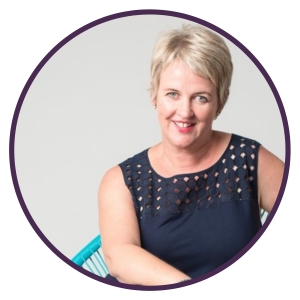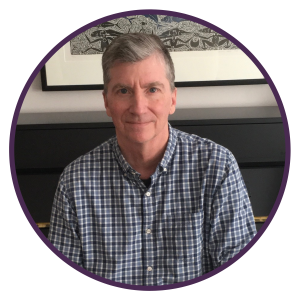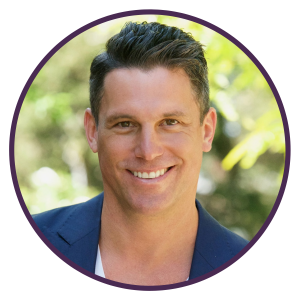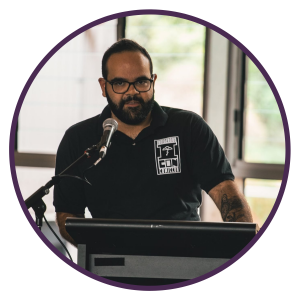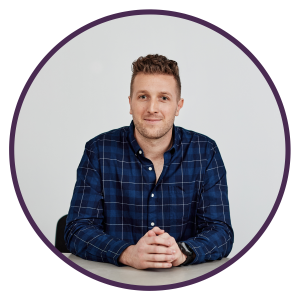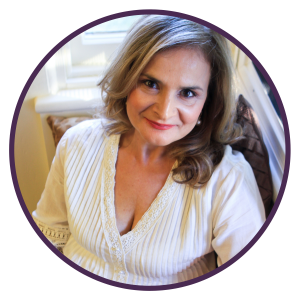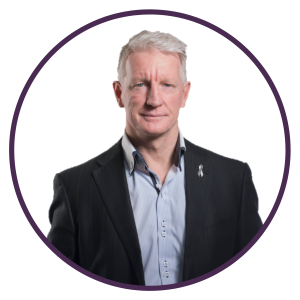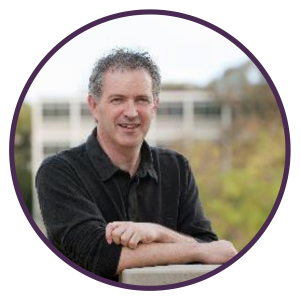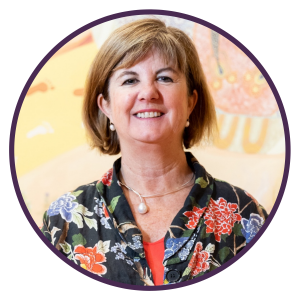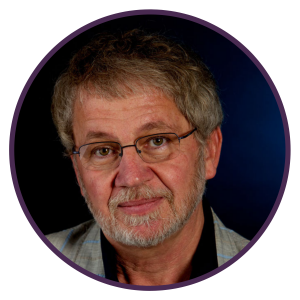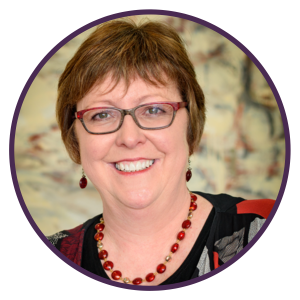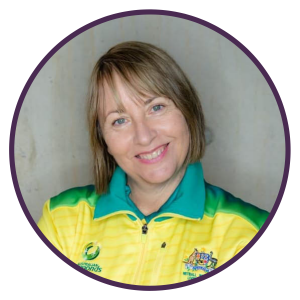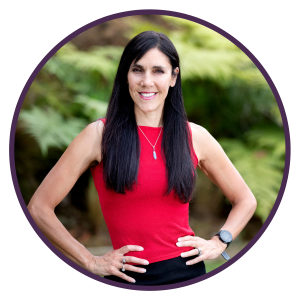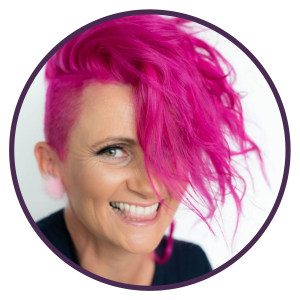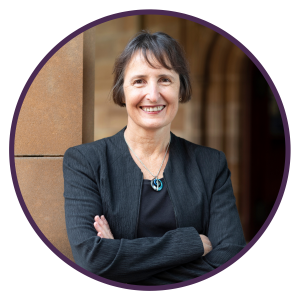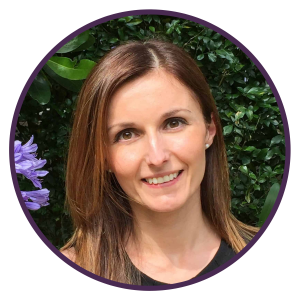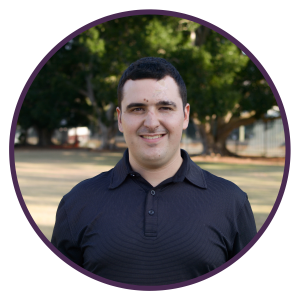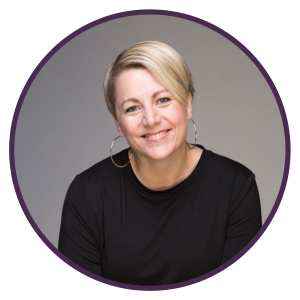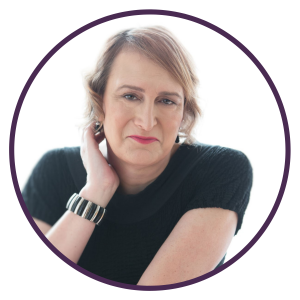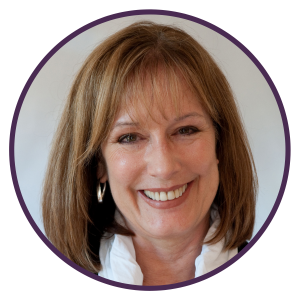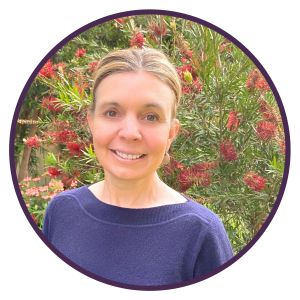Episode 3 - Understanding Depression and Anxiety

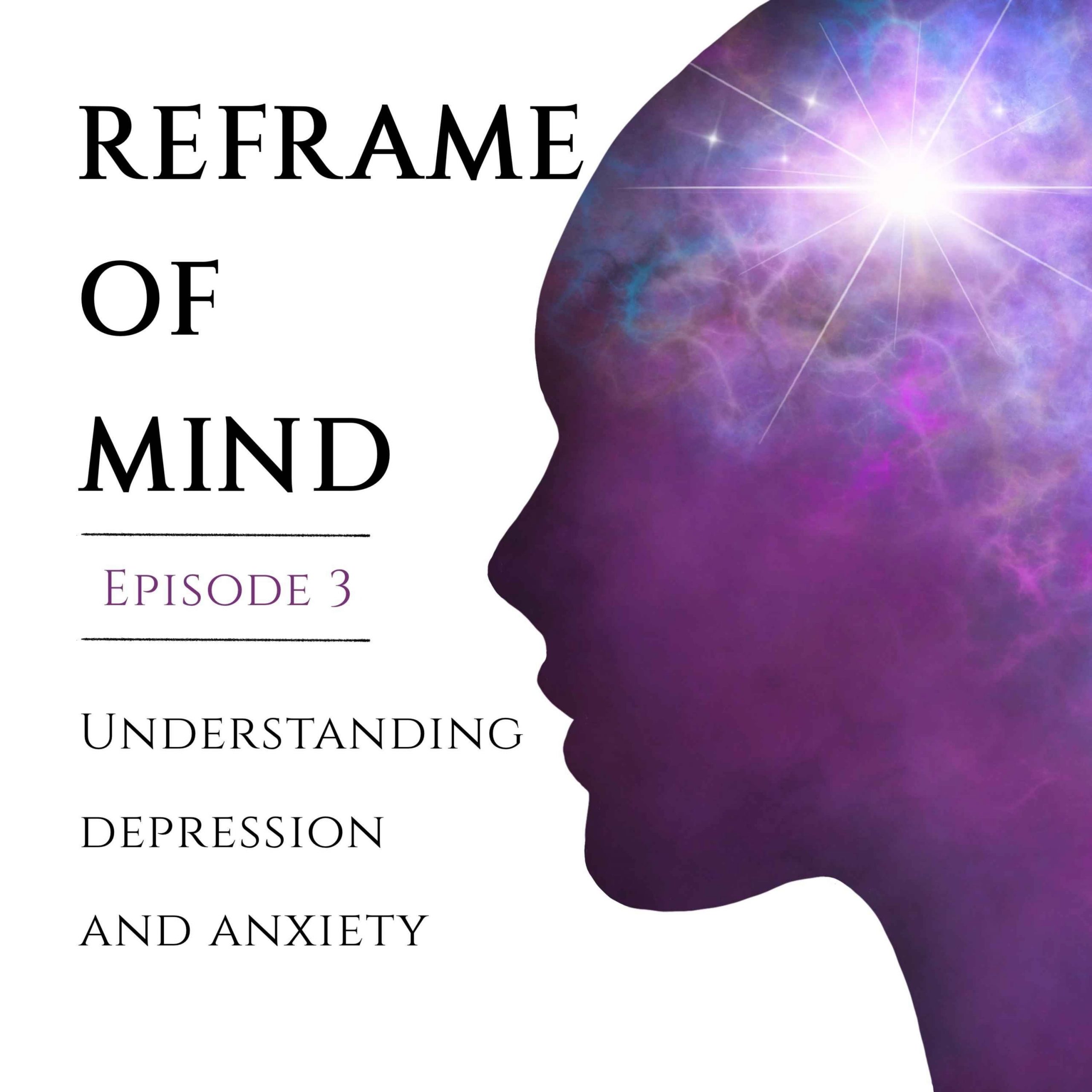
Depression and anxiety often turn up hand-in-hand. We explore these two common mental health issues with the help of The Happiness Institute Australia’s Dr Happy, Dr Tim Sharp, Associate Professor from School of Psychological Sciences at the University Of Tasmania, Dr Kimberley Norris and, Dr Lisa Saulsman, Cognitive Behavioural Therapy specialist and Senior Lecturer for the School of Psychological Science, University of Western Australia.
Together we explore the signs, symptoms and treatments, with an intention of de-stigmatising issues around depression and anxiety, with some personal stories from Louise and Andy, as well as some tools from our guests.
You can connect with Louise & Andy on our social media directly below:
Jump to: Episode Transcript | Show Notes | Other Guests | Gallery
Follow us now on your podcast app!
Reframe of Mind contains discussion around mental health that may be disturbing to some listeners. If you are concerned about yourself or someone you know, please seek professional individual advice.
Some of the main crisis lines in Australia are listed on our Mental Health Crisis Resources page, including those that operate 24/7 like Beyond Blue and Lifeline.
Guests this episode:

Dr. Kimberley Norris
Dr. Kimberley Norris, Associate Professor School of Psychological Sciences, UTAS

Dr. Lisa Saulsman
Dr. Lisa Saulsman, Senior Lecturer and Deputy Clinical Director with the School of Psychological Science at UWA

Dr Happy, Tim Sharp
Dr. Happy, Tim Sharp, The Happiness Institute
Gallery
Jump to: Episode Transcript | Show Notes | Other Guests | Top of Page
Show Notes:
Here’s some extra things you might not know about our guests, as well as some of the things they mentioned during the episode.
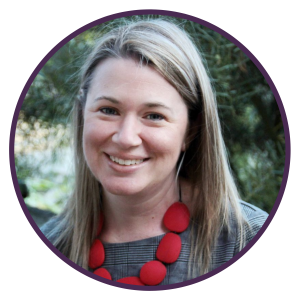
Kimberley Norris
Research resources:
Video Resource:

Lisa Saulsman
CBT Resources by Dr. Saulsman:
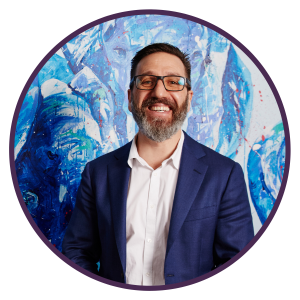
Dr Happy, Tim Sharp
Books by Dr Happy, Tim Sharp:
Dr Happy Public Speaker Profile
Podcasts by Dr Happy, Tim Sharp:
- Habits for Action Podcast
- Habits for Good Sleep Podcast
- Habits For Happy Children Podcast
- Habits for Happiness Podcast
- Habits for Happiness at Work Podcast
Articles:
Jump to: Episode Transcript | Other Guests | Gallery | Top of Page
Transcript
Louise
We acknowledge the Yuggera and Kaurna nations as traditional custodians of the land on which we work, live and learn. And they continue in connection with the land waters and community, we pay our respects to them and their elders past and present.
Andy
All content related to this program is for general informational purposes only and contain stories and discussion around mental health. That may be disturbing to some listeners. If you’re concerned about yourself or someone you know, please seek professional and individual advice and support. More details are contained in our show notes.
Dr Toxic Positivity
Depression, looking for depression?
Depression
Oh, yep, yep, that’s me Dr Toxic Positivity.
Dr Toxic Positivity
Come through depression. How are you?
Depression
Oh, well, I’m feeling depressed. I want to get some help.
Dr Toxic Positivity
Oh, you’re feeling a little bit down. Maybe it’s just some fatigue.
Depression
Yeah, yeah. All of that.
Dr Toxic Positivity
You don’t look depressed.
Depression
Well, I’ve been hiding things for a long time. And sometimes I go to bed on Friday, and don’t get up again until Monday morning. And so, I was hoping to get a mental health plan.
Dr Toxic Positivity
Maybe your just tired. I can see you’re a busy day most of the time, and everybody has bad days occasionally. Hey, why don’t you go away and have a think about these and then come back another time if you’re really depressed? Or not? Sometimes we just need a good lie down and a good thing about things.
Depression
That’s my problem. I think I think too much.
Dr Toxic Positivity
Have you tried not thinking about it? Sometimes when we get some perspective, we realize that other people do have it worse than us. I mean, what time did you have your last coffee?
Depression
Sometime in the afternoon?
Dr Toxic Positivity
That can account for your poor sleep. Cutting your coffee intake from midday that should fix it.
Depression
I don’t know that’s the problem. Really?
Dr Toxic Positivity
Why has something happened to make you sad? I want you to take this home and read through these tips to help you out.
Depression
Turn that frown upside down. Go for a walk and loosen things up. I don’t need extra attention because I find joy, I am I love turning in early and getting a good night’s sleep. I feel like a nice is gonna help
Dr Toxic Positivity
That’s where the trouble lies. Whether you think you can or you think you can’t, you’re right. How about you go home and put on something that brings your mood up during the weekend watching some good comedy us and if you’re still feeling a bit sad this time next week, well, back in and we can go from there.
Depression
Okay, yeah. Thanks.
Dr Toxic Positivity
Have a lovely day!
Andy
Depression is complex. Sometimes it helps to talk. Other times, that’s the last thing we want to do.
Louise
The worst place to be is to feel like you can’t talk to anyone about anything. And there are no options to get out of the chamber. I’m Louise
Andy
And I’m Andy. And this is Reframe of Mind.
Louise
The podcast that cuts through the platitudes and gets to the core of living authentically challenging our assumptions and improving mental health with the guidance of good science, philosophy and learning from other people’s lived experiences.
Andy
In this episode, we unpack some of their own experiences alongside professional insights from Associate Professor Kimberly Norris School of Psychological Sciences University of Tasmania
Louise
and Dr. Lisa Saulsman, Clinical Psychologist and Senior Lecturer at the School of Psychological Science University of Western Australia.
Andy
One of the common things toxic positivity will usually try to tell us is there’s always someone who has it worse off right?
Louise
Last time on Reframe of Mind we met Dr. Dinesh Palipana who became a quadriplegic after a car accident when he was studying medicine.
Andy
Surely a spinal cord injury has to be more debilitating than depressions says toxic positivity. But what does Dinesh think?
Dinesh Palipana
It’s something that I often reflect on and share. And that is, you know, I have quadriplegia now, so my body is very different. And it might change the things I do. But depression was far more debilitating than the spinal cord injury ever has been. Because I think when you’re a prisoner of your mind, when you can’t get out of your own head and be stuck, like I’ve got a friend going through it right now. And it’s so debilitating for. She’s just, she’s struggling at work and whatever else. So, I think when you have your mind, you can be more powerful than ever, and you can do anything. I’ve had the benefit of being able to compare both experiences and yeah, I can safely say that depression is far more debilitating than spinal cord injury has been.
Louise
Dr. Tim Smith, also known as Dr. Happy from The Happiness Institute helps us to understand some nuances when talking around the subject of depression.
Andy
I was thinking around the concept of longevity with happiness and good feelings and so forth. And I thought, Okay, well, if we look at the example, on the negative side of sadness versus depression, could we equate depression as something like a climate, whereas sadness would be an emotion, like the weather within that climate? Or is it really something that’s too simplistic because we don’t really want to go around telling people just to be happy, we want to be able to help them to get through whatever they need to get through to resolve any kind of depressive feelings they have?
Dr Happy, Tim Sharp
That’s a great analogy. It’s a very useful concept. And it is very similar to one that’s been used in psychology in different ways for some time now. So, in psychology, what we can talk about, if I just use those emotions is the difference between depression or sadness as a mood, which, as you said, is something we all experience. I mean, you know, you wouldn’t be human if you hadn’t been sad for at least some time or, or grants, some loss, you know, some grief or whatever. So, there’s a normal human emotion, which hopefully for most people come and go. So that’s depression is a mood like that, versus what we might technically call major depressive disorder, which is a formal psychological diagnosis. And at the risk of oversimplifying, one of the differences is that the major depressive disorder is prolonged. So goes on for not just a few minutes, or a few hours, or even a few days, but for a few weeks, and that’s the important differentiator. So that’s when I mean it is more complicated than that we can come back to if you want, but, but that’s the difference between what we might say is, quote unquote, normal forms of depression or sadness, and quote, unquote, abnormal or dysfunctional forms, where it’s lasted for more than two weeks where it’s significantly impacting on your ability to function where, you know, it’s impacting on your ability to work or socialize or whatever, where it’s affecting your concentration and your mood. And I mean, sorry, your appetite and other things as well. So, so yes, in a way, that’s a bit like it, the fact that it’s a bit cloudy today doesn’t necessarily mean we’re entering, you know, the next Ice Age.
Louise
So, Andy, we did promise that we weren’t revealing all the vulnerabilities in this podcast, right?
Andy
We are, warts and all.
Louise
Well, here comes some warts. Let’s talk depression, let’s get down and dirty with it and talk about the thing that people don’t want to talk about.
Andy
It sounds like it might be really easy for us to talk about what we’re talking about through this series and the stories that we’re accounting, but I mean, it comes off the back of months of our own therapy choose days, we, we joke about it now, we even joked about it a bit in between as well. But we did a lot of processing, while we were editing these interviews together, the first pass through edits, for example, but then we thought, okay, well, now we’re good to go. And we started getting all the grabs that was like, Oh, my God, more trauma,
Louise
not to mention the trauma when we were doing the interviews,
Andy
which you’ll hear in the interviews.
Louise
I think I actually am sitting here now feeling like, I’m, I’m not depressed today. And that we can be grateful for that. And that’s a very good thing. I’m very happy to not be depressed today. I’m very happy that my last little DSM score came back as only mild and not severe. But it also leaves me feeling a little bit like an imposter. Who am I to talk about depression now that I’m not depressed, not in the middle of it as badly as I was in the last year? And I think that really speaks to the way that we are used to people talking about depression, when we hear stories, they’re always picked up from the worst possible place. It’s that tragedy porn, you know, the, the drone starts, and someone is in the worst moment of their life. Yep. And then they
Andy
talk about it right back in that moment. Yeah.
Louise
I don’t want to be right back in that moment, though.
Andy
No, thanks. I mean, I’m very happy to share what we’ve been through. And, you know, there may be times throughout this series that we do actually get triggered by one thing or another as we hop back into the story or start processing things again, but I’m really happy that we’re not there. At this moment. As we’re recording this.
Louise
I couldn’t talk about feeling depressed for so long. I couldn’t talk about the fact that I was depressed for so long. probably took me about five or 10 sessions with my current psychologist before actually started to really open up about the fact that I was afraid to be depressed I was afraid of those negative emotions and I mean, I think you would have seen in our conversations every day how you know the extent of what depression has been like for me over my life.
Andy
which we will get into get into throughout the series as well, you know, that’s all the good stuff to come. Oh, but it yeah, definitely like I’ve been on this journey with you for about a year now. And a lot of stuff is we’ve thrown about and tossed about and always be In each other’s shoulder and rock, and what have you along the way before therapy, three therapy, free therapy, you know, where else do you get the benefit of recording an interview with a professional who specializes in psychological services, and then go actually this is how it applies to me with someone you trust, you can have a chat too, that isn’t gonna jump in and tell you you’re wrong, and isn’t going to try and fix it for you, but just lets you explore it. And that, ultimately, I think, is what we’re trying to create here for anybody else that might want to use it that way as well. This is our experience of these things, and everybody will have their own experience of it.
Louise
So why don’t we start a year ago, then, when we’re first launching Welcome Change Media, which is the business that we’ve started together, Andy, you know, I started to see this psychologist that I’m seeing now, just after, I think it was that I left my previous job. Not long before that, I recognize that my depression was really bad. And I’d gone to see the GP and I’d got the mental health plan. I wasn’t until after I left that job that I was able to finally get in with a psychologist and really go through a lot of things. So, by the time I met her, that depression was not great. Not that it’s ever great, but it was quite bad.
Andy
And yet, you were still using some pretty effective masks I have to say.
Louise
do you think I was?
Andy
Well, you know, I thought you were being with confidence when you said, Let’s make a podcast like Yeah,
Louise
You thought I knew what I was doing?
Andy
Well, my old boss from Darwin was contacting me saying, Let’s make something I thought, Yeah, that’s awesome. Which it is but it was completely different to the way the situation actually was.
Louise
Because you thought that I had all my shit figured out. Turns out I had no shit figured out.
Andy
as it turns out, I had an plenty of my own shit to figure out. We’re both in it together, warts and all.
Louise
When we started, welcome change media, I had already spent the last six months struggling with depression, I had trouble working on my work, I had trouble working on my identity of who I was, without the career that I’d worked. 20 years for two of my cats died within a month. And the thing is, though, that, and again, this is easier for me to talk about now with you with Andy with someone I trust, and with some distance from how I was feeling. But I realized that I had been experiencing rounds of depression throughout my entire life. And this round was the first round that I ever received medication for, because I thought that I could think my way out of all the others, I guess I couldn’t, but I managed to run away from them and distract myself. But they all came back.
Andy
Yeah, I can relate to that, as well. Because I think for me, certainly earlier in my life as well, there were patches where I felt terribly depressed. Overall, my early adult life, in hindsight looks like a roller coaster of internalized emotions that just ended up with binge drinking at parties or clubs. And, you know, as we work on ourselves over the years, and, and fun things about ourselves that we, we learn to love, you know, like when I came out things stabilized, you would think that’d be quite tumultuous and would have its own problems, but you can, but for me, that actually was a bit of a, an affirmation for who I was, and I didn’t have to hide that part of myself anymore. So that was a relief. And I think it would be fair to say that I learnt how to manage that after studying counselling, like talk therapy worked for me, I remember the very first time I saw a counsellor was after my first long term relationship ended, always 20 years ago now. And I came out of that first session feeling amazing. And it wasn’t because I was cured. It was because for an hour, someone had let me talk. And finally, I could say the things that I needed to say that were important to me how I was feeling about things without feeling judged about it without somebody trying to hop in and fix everything. I just, I felt hurt. I feel good that I could pay my money. And I could get out of there. But I’d been hurt.
Louise
I’m sorry. I’ll jump in on you before hours up Andy to share my own story. But you’re not paying me $170 an hour here, which is what I pay my psychologist – probably a great deal considering how many times I just get to go in and offload everything to her and then just walk away.
Andy
It’s almost like depression happens in patches. For me, this is my experience. It might not be anybody else’s, but something might happen or even not happen. But suddenly, I’ll notice that I’m in a low point. You know, I might have an episode today. And then it might be years before I feel that way again now or months. You know, one point I was doing shift work for a security company, and that led to a whole other build-up of anxiety. And that actually led to quite a sustained period of depression.
Louise
That’s the thing about depression. Its cousin is anxiety, isn’t it? Or maybe even its sister. Anxiety really does go hand in hand with depression. And that affects a lot of things. And I think one of the biggest things that I didn’t read realize until the last 12 months is how anxiety is not just a feeling, but it actually manifests in your body. It affects your chemistry, it affects the way that your body feels the way that it reacts to things, particularly it affects your sleep. And then you get into that cycle where it’s affected your sleep and you mind is running off with you and your anxious, and then you can’t really sleep. And then because you’re getting a shitty sleep, you feel less able to take on the next day. And then the anxiety runs off with you thinking about that and is around. Yeah, snowballs. So, by the time we spoke to associate Professor Kimberly Norris, from the School of Psychological Sciences at the University of Tasmania, I was already taking sleeping medication, I tried a few different brands, some of them didn’t work. And I really wanted to find other sustainable, non-addictive options.
Kimberley Norris
When you’re lying there and you can’t sleep, your brain starts ticking over. So, it’s tick, tick, tick, tick, tick, tick, tick, tick, tick, thinking, thinking, thinking thinking, but actually giving yourself permission during the day. And it might even be before bed, not too close, but maybe before bed. And we call it thinking time, some people call it worry time, some people call it working time. And essentially, I can just go to town for these next 10 to 20 minutes or so I can just let my brain absolutely go to town with its thinking its problem solving, it’s worrying. But then if it starts to happen any time outside that, so when we’re lying in bed, or perhaps when we’re somewhere else where we don’t want this to happen, we say it’s not thinking time right now, if it’s still there, when it’s thinking time, sure, we’ll indulge you them. But for now, we’re not going to go there. And so, you deliberately redirect yourself to thoughts that help you feel happy things that you enjoy thinking about, rather than using it as a problem-solving time.
Andy
Does the body respond better than to messages of, you know, trying to retrain with that internal voice? Or does it respond better to things like muscle stretching the aromatherapy, the other senses, when we’re trying to retrain ourselves?
Kimberley Norris
ideally, it’s actually a combination of both that internal voice as well as those physical approaches, because the brain has really strong connection with the body. And they speak to each other all the time. So, if you actually act on both, at the same time, you’re literally those new neural pathways you’re building in your brain, which actually underpin patterns of behaviour. They underpin routines and rhythms, they actually build much more quickly, and are reinforced more strongly when they’re getting multiple sensory input. So, when it’s your internal voice, as well as your actions, they build together. And over time, this neural pathway builds, and the more we use it, the stronger it becomes. And that’s actually why you never break a habit as an adult, because you literally have a neural pathway in your brain for that habit. And we instead replace them, which literally means building a new, more preferable neural pathway in your brain, that becomes the dominant pattern. How long does it take to build a new pathway depends on how complex the behaviour is, more simple behaviours can be achieved, you know, quite quickly, more complex behaviours can take weeks. But the idea is, the more often you activate this neural structure, the more often you activate this pathway, the more energy literally, the more energy you’re sending to it to grow.
Louise
I really like the idea of scheduling my anxiety time. So, it doesn’t take up the whole day. So go, no, no, we save that for after six when it comes later, after dessert. Yes. later on, tonight. So, I kind of wonder, then how we would create that as a pathway that’s done through routine then obviously, so backing it up with the internal voice and the external actions, if I wanted to do something like create a specific time of the day where all I do is dump all my anxieties in and then close that box after the timer goes off. Is that the technique to do that to just keep doing it until it fits?
Kimberley Norris
Absolutely, absolutely. And after a while, what you notice is you won’t even have to have that deliberate Oh, no, it’s not that time yet. Because your brain will automatically go. It’s not that time yet. And so, it will give you that ability, as you say, through passion through routine to actually have greater control. And you know, during that worry time, like you say go to town.
Louise
Have fun thinking of the worst-case scenario.
Kimberley Norris
Exactly. And the fun parties, like you said at the end, you close that lead and say thanks for that. You can stay there now.
Louise
And then afterwards, I suppose once that pathway is built, I could build another pathway on top of that, that says let’s just bypass that worry box altogether.
Kimberley Norris
Well eventually what you can do is learn how to use that worry time to actually conquer the worries. So rather than just containing them, you then conquer them. And that’s, that takes a little bit longer. And employee strategies like cognitive restructuring, which is essentially where we train your brain to think in a different way about your worry. But it’s a very, very effective way. And as you say, eventually, the big worries that don’t really have to be worried that occupy your time, but really don’t achieve anything, they will go, but worry will still be part of everybody’s life, because it’s normal. And it actually helps keep us safe. But it’s when it gets too much too often that we want to turn the dial down and get on top of it.
Andy
From a more mundane level as well. I’m thinking this could have some really practical uses. I mean, we all have to do our housework. Right? So, if we can use that time to work on things creatively, you know, our thoughts or to actually use our thoughts in ways other than geez, I hate cleaning the bath?
Kimberley Norris
Most definitely. Yeah, the same principle. That’s exactly it the same principle. So, and it could be, well, I have to clean the bath. So, you know, I may as well use this as a time to listen to that audio book that I never get to, or to turn up my favourite music or to, you know, work out. Or suddenly, as you say, changing the thinking around the action actually changes the mood around the action,
Andy
I think I just found some motivation to iron those shirts.
Louise
I just found a whole new way to look at the housework. instead of hating it, I could combine all the things that I hate in with my newfound anxiety time, let’s just do it all at once.
Kimberley Norris
Well, fundamentally, what we’re talking about is something that we’ve known for quite some time, which is the way we think affects the way we feel. And the way we feel affects the way we act. So, if we can, you know, press on any one of those three components, we will affect change in the others?
Louise
Or what if when the component is, you know, I know we do kind of have a jokey tone about the anxiety. But sometimes it’s worse than others. Sometimes it’s paralysing. So absolutely, what about when it’s extreme. And even when it comes to depression, it’s also felt that in ways where it is just you, you just can’t get up. So how do we kind of start to build those new pathways when it’s more extreme, same process?
Kimberley Norris
it’s a similar one. But as you’ve indicated, it’s much more challenging, because for example, when you are literally paralysed by your anxiety, we actually know that you that it’s very hard to think straight, let alone do these things. So, what we’d actually say is, when you’re in those really critically high levels of anxiety, the first thing to do is to focus on the physical. So, focus on getting back in control of slow, deep breathing, because what happens is that will slow our heart rate down, which will then start to send a message to our brain, it’s okay, you are safe. As our heart rate slows down, we can also if we release some of the tension in our body, and even people who don’t suffer from extreme anxiety, do hold their anxiety in certain part of the body. For some people, it’s their shoulders. For some people, it’s a forehead, for some people, it’s a chest, it can be anywhere, but learn where it is in you. And spot release that through breathing. And imagining that space becoming open and relaxed. As your anxiety, your anxiety will actually slowly come down, that’s a bit of a band aid, if you like, and it will slowly come down just enough to start to think a little bit more clearly. And that’s when you’re going to be more able to introduce these routines. And also, you know, I think in those instances, most people would also benefit from getting some specialized support to learn more focused and targeted strategies on their thoughts and their feelings and their body’s reactions, so that they feel more in control, because that’s the thing about anxiety, essentially, is when we feel the world is unsafe, and things are out of our control. So, bringing down the anxieties actually, the first thing and we can’t do that with thought, when we’re in those really, really high-level states, we actually need to start with the body. Similarly with depression, when we’re in those very, very low states, what we actually need to do is to try and increase our energy, which of course our brain is saying, I don’t want to, I can’t. And our fatigue that often goes along with depressive episodes, makes it very challenging. So, for people with depression and depressive episodes, having a pre prepared routine, where they don’t even have to think about what should I do? It’s already there. And part of that routine is about recognizing that most actions that many people without this condition, take for granted are actually See lots of smaller actions. So, the example I often use, if you all think about for a moment, how many steps are there in putting on a load of washing. So just try and calculate how many there might be. So that there’s quite a few. And people depending on you know how diligent they are with their washing, I guess it can be a hit anywhere upwards of 45678 Odd steps. Now, if you’re you are somebody who’s experiencing a depressive episode, eight steps are probably a lot more than you can do in one heat. Just think so instead of overwhelming what your brain says, I can’t do all of that. So, I won’t. So instead, you say, Okay, I know I can’t do all of that. And that’s okay. So, I’m going to do step one, which is to collect the items that need to go to the laundry. And if I do that, guess what, I’ve achieved something. And if I’ve achieved something I need to recognize I’ve done that. And sometimes, that’s where it stops. But it doesn’t matter, because you’ve still changed. Sometimes you’ll go, well, I can’t do any more. But tomorrow, I don’t have to do that first step, I can go to the second step, which will be to sort them into their relative piles. And so suddenly, the idea is, rather than being completely overwhelmed, because this is a lot to do, it’s about recognizing, I don’t have to do all or nothing, I can take steps in between and every step I take is an achievement.
Louise
I love how you said that. You can’t think yourself out of feeling this way. I wonder what is going on chemically in the body that is stopping that because you I’ve found personally you can’t think yourself out of those moments. Absolutely. So, there’s other processes going on that you know is working against you so that you can’t do that, that would be knowledge that would be helpful for people have.
Kimberley Norris
Everybody who experiences those high levels of distress that go along with all sorts of conditions, which obviously are not limited to anxiety and depression, but we’ll use it as an example, the neuro chemicals in your brain literally are not in balance, they’ve literally become out of balance. And once your brain’s neuro chemicals are out of balance, your ability for the brain to work in the way it should, is also out of balance. So, it is literally impossible for your brain to work the way you want it to when it doesn’t have the chemicals that needs to. So generally speaking, when we’re talking about depression, for example, it’s we have too little of certain chemicals, such as serotonin or too little of chemicals like dopamine, which is if you like a little feel-good chemical. And so, it’s not that people aren’t trying, it’s literally that the chemicals in their brain won’t let them think their way out of it. And that’s why types of therapy can be really useful, because some therapies can assist in recalibrating that balance. But it’s also why for some people, medication will be a genuine necessity, because it is the only way to get those chemicals back in balance and get the brain working the way we would like it to.
Louise
I know this is turning into my personal therapy session. But I was gonna say and that that’s a that’s exactly the same. Like that’s the situation, I would have thought for years thought, I can’t take medication, I should be able to think my way out of this. This is not no matter how many depressive or anxiety related states that I’ve had over my lifetime, until the last one where my doctor recognized that and said, look, let’s try this. And I finally said yes. And then by taking SSRIs, it helped to balance that so that I could start to think around that I kind of like to speak to people about normalizing medication and not having a stigma around it because it doesn’t solve the problem. But it certainly gives you the space to solve the problem.
Kimberley Norris
I love the way you put that because that’s exactly why I speak to my clients about this, that essentially it gives you a buffer zone, it gives you that little bit of space to breathe, so that you can then start doing those other strategies that help you longer term to get on top of these things.
Andy
More from Kimberly later, but let’s just hit the pause button for a sec and talk about medication and depression in general and how we’ve had a dance with that throughout our lives.
Louise
I’ve had a lot of experiences of depression, that I’ve really only come to realize have been so bad since taking medication because I for years have said no, I don’t need medication. I can think my way out of this. I thought my way into it. I should be able to fix this. And I was finding my own body chemistry. There’s been stigma around medication.
Andy
Certainly, I can attest to that. I’ve lived it. I have experiences from my 20s when it was suggested that medication might or might not be a good way to go depending on who I spoke to.
Louise
I’ve had it suggested that I couldn’t possibly go on medication for depression because it’ll make me gain more weight.
Andy
But you know, like I had somebody say, well you want to go to any kind of medication, because it’s all addictive, and you’ll never get off them. These are the sorts of things that come up with this stigmatized view of, of medication that actually really significantly helps people.
Andy
Or you know, like I had somebody Please say, well, you don’t want to go on to any kind of medication because it’s all addictive, and you’ll never get off them. These are the sorts of things that come up with this stigmatized view of, of medication that actually really significantly helps people.
Louise
Yeah, really can and not all medication is going to be right for you. I mean, I feel like now I should be getting sponsored by a pharmaceutical company,
Andy
I was gonna say, don’t be sponsored by anybody in particular, or at all actually around all of this medication talk. But I think it’s worth having a conversation about it. Because I mean, to this day, I don’t take medication for any depressive episodes, or any anxiety or anything like that. And I’m quite fine today, as we sit here today, I’m fine. I’m not in that state. There’s no need to start that drone or the or the sad music, no trauma porn here. No trauma porn today. But you know, tomorrow, the next day, sometime next week, I might get triggered by something, something might make me feel bad again about myself.
Louise
And you know, I take SSRIs daily, I have done now for the last 18 months or so I’d never taken them before that my GP was lovely and said: ‘Are you willing to give this a try?’ It might help. And I said, Okay, let’s try it. We started off on a low dose with an ingredient a brand that made me feel like every time I went to the toilet, I was gonna shit my anus out.
Andy
She paints a pretty picture.
Louise
I’m so sorry to all the colleagues that I worked with at the time that had to follow me into those cubicles. So that’s not a great story about medication. But you know what, I went back to the doctor, and I said, my stomach cannot handle this. What else can we do? And she’s like, well, let’s try a different ingredient. Let’s switch brands. So, we switched brands, and that one worked a bit better. And then she’s like, well, you know, we reassess it in a few months, is this helping more? Okay, well, if you’re feeling like it’s helping, sometimes, but not all times, then we can adjust the dose, it’s a trial-and-error process that we’ve been through like that. And now, the one that I take doesn’t affect my gut in that way, the amount that I take seems to be enough for me to keep those SSRIs nice and happy in my head. And it gives me the space to not be so reactive to myself, and those emotions, those feelings when they come up. And that’s the beauty of medication. It’s not all going to work. First go. And it’s not always going to be right for everybody. But I think that taking that stigma, you know, reducing that stigma around it and talking about it as well is really important. Because when I started taking SSRIs, I didn’t know anybody else that was, and this is 18 months ago.
Andy
Look, I sometimes wonder what would have happened if late 90s, Andy had actually taken the prescription from the doctor, you know, I was feeling particularly down at the time. And the reason I went to see a doctor about it was because I just couldn’t shake it, you know, I’d had episodes, you know, label them as episodes, I’d had periods before I felt down. But this was a long-protracted experience this time around. And I was looking through a photograph recently, from that period of time, and what should have been a photograph of the normal happy day trip out with Dad on the 3801, which is like an old steam locomotive. The photo of me standing in the driver’s cabin, I can see this day like the expression of my face, I can see the emptiness I felt empty inside. And so, I went to the doctor and was saying how I was feeling and that I wanted somebody to talk to my line of inquiry was about trying to get some talk therapy, which itself had its own stigma as back then. And I said I don’t want medication. I don’t want to be on drugs because another friend who was on medication at the time said to me “Look, you know, you’ll get addicted, they’re not good for you that do terrible things to your body”. Any chance of me even considering medication at that point was far out the window. But the first thing the doctor did was write a script. So, I didn’t feel like I had been listened to, so I tore it up. Yeah, yeah, I think within that as well, there was a feeling that okay, well, I might be feeling this way but it’s nowhere near as bad as what that person is going through because this is happening to them as a result and that’s happening to them. Whereas you know, me I’m holding down jobs I’m doing all the normal stuff and successfully getting through life.
Louise
And you know, our character from the Angsty’s ‘depression’. Actually, also, our character from the first part of the episode here when he goes into the doctors, yeah, yeah. True story. The first time I tried to get help, actually, about four years ago when I went to see a GP and then they said to me, maybe you just feel down today you don’t look depressed. And I walked out and then you know, didn’t see another one a different one till three years later. So that stereotype of depression and what somebody with depression looks like is not right. It’s not the sad sack on the couch that won’t get up and can’t do anything and sits around in the house crying all the time. I mean, it could be, but it’s also the highly successful person you know, that works with you that goes to work and puts on a mask and pretends to be all these things and then spends the night crying you made or just not feeling like connecting with the world?
Andy
And look, we’ve had a conversation about our own tone, as we’re recording these episodes. And, you know, the most common way to present some of the stories that we’re telling would be to Cue music in the drone. Are you crying yet? Do I need to ask another personal question to make you, you know, a bit more emotional? We see on TV all the time with these stories. And, you know, to me, it feels like an extension of that toxic positivity narrative, because inevitably, there’s that ray of hope at the end, or that that moment of where the struggle has been overcome, and they’re an inspiration. And, you know, the happy piano starts and all of that bullshit, you know, it’s, but we don’t need to do that. Because the one thing we said we want to do when we’re making this is Be authentic. Right now, I don’t feel like that. And I don’t want to go back into that state to recall those stories. I can talk about that how I was feeling on that day and remember it, but I don’t have to get myself back into that state to make people aware that that’s how I actually felt,
Louise
you know, I don’t feel like that today, either. But we were originally going to record this episode a couple of days ago. And the first time we were going to record this episode, something had happened in my day that triggered an anxiety attack so bad that I just said, Andy, I can’t do this. And I went back to bed. Yep. So even though I, a part of me is sitting here, so used to after 20 years in Media, presenting stories in that way that you’re describing. Let’s get to the crux of it. Let’s get him to cry. Let’s make him tell that story and hook them in with the emotion. And I’m sitting here thinking, well, should I be crying when I’m telling the stories of feeling suicidal? Should I be crying when I’m talking about the darkest moments in my life? But the answer is today, I don’t feel like that today. I don’t feel like it’s the worst day of my life today. I feel like there’s things to live for and things to look forward to last week was shit.
Andy
And my violin skills aren’t that good.
Louise
The thing is that today, I feel great. And today, you feel great. And we’re recording this thing. And we’re wondering, should we be you know, down in the trenches down in the gutter in our heartbreak, sharing those stories from that place of feeling? But could we even do that anyway? Because I wasn’t in a place to record on anxiety day last week, what would you do? gone for the live interview in the shower with me when I was sitting on the floor? Crying?
Andy
That’s right, just protect the mics, right? Don’t get them wet. The waters hitting the right, you just kind of angle yourself a bit to the left. That’s better. Yeah. The one thing I can say today is that I do carry a little bit of anxiety. So, it’s not bringing me down to the point of depression. But the thing that I am anxious about right at the beginning of this series, as we’re recording it is that I’m sharing a lot of personal stories throughout the series. And the one thing that I am very anxious about amongst that is that I might say something that is going to upset in some way or offend or make somebody feel bad. Yeah. Because there’s a possibility that somebody might hear something along the way and think, oh, that’s me. And that’s not my intention at all. In fact, I’m doing everything I can to take any kind of identity away from anybody with anything I talk about. But that is a point of anxiety for me as we go forward with this. And its only as we keep talking about these things. And I can see clearly, I’m not actually all I’m doing is making myself look like the one who’s got the problem. You know what I mean? Like, even the way I language that, you know, like that’s kind of a manifestation of where I’ve been through in life. And what I’ve come to expect of myself because of things that have been said to me over the years by significant people in my life. And that’s me, I took that on, it’s up to me to sit with that anxiety as I actually have this point of reckoning and heal it.
Louise
So is there value in going over the old stories, we’ve written a big page here, literally in front of us, we have notes here about the time that the times plural, that I felt suicidal. And I’m actually just wondering if there’s any point to going over those except to pull out the parts that are relevant to now is there a point to retelling those stories?
Andy
Well, here’s my take on that my whole thing,
Louise
here’s your take,
Andy
here’s my hot take. And it’s a bit of a journey. Yeah. Because, you know, my analogy is, I’ve got this kind of theory about pop culture, right. So, think back to we weren’t neither of us were alive. So, it’s going to take a bit of imagination, but think back to a time back in the 1940s 1950s.
Louise
Thinking back to my past life. Yep.
Andy
Colonial Australia. Yeah, well, we were a federation, but you know, very much still tied to the Empire of England and how important or how highly regarded the royal family were, they were the celebrities of the day, if you want to somebody to look up to was the royal so skipped forward half a century and suddenly we’ve got the Kardashians, we’ve got all these other famous types, whatever generation we all have our own celebrities that we’ve followed, but it’s kind of struck me that the reason that People probably follow these people or take so much interest in their lives the way they do is because they want to know that they’re not the only ones feeling like this. You know, they want to know that that person that they’re looking at that big Hollywood person is capable of feeling just as bad as I’m feeling today. And so, when something salacious comes out about them about the divorce, or about an affair they’ve had or something like that, it suddenly makes them normal brings them down to a relatable level. And it’s not so much that okay, well, that means I can get up to that kind of level. But it means that that person who is so successful and it’s got such reach is actually no different to me. That’s common ground. Yeah. And so I do think there’s value in sharing those stories, because when I’ve heard stories similar to this in different seminars, I’ve been to, for example, some of them, the speakers have still been very close to the subject matter and have actually become emotional, others, they’ve lived it, they’ve learned from it, and we’re recounting it and we’re able to express in detail what their experience has been, but it doesn’t actually affect them emotionally anymore. And that’s okay, too. That’s actually probably preferable because it shows me that it’s possible to get through that level of shit and be okay.
Louise
Oh, can I tell you about the first time I noticed that my depression was really bad.
Andy
Yeah,
Louise
I was around about I think, 2122. I lived in Canberra at the time, I had only recently moved there to work in TV. And I wasn’t coping with I was working shift work; I suppose I felt isolated. I don’t know exactly what the catalyst was, for me feeling the way that I felt. But I do know that all things start with the floor of the shower. All my stories have the shower in them. There’s something about sitting under running water, that gives me time to think I suspect some on the floor of the shower blade in hand. And I’m asking myself, why bother? I actually when I say I lived in Canberra, I lived outside of Canberra on a farm. And so, I was aware that my tank water was, you know, getting lower and lower as it was in there for about an hour. I think it wasn’t until the hot water ran out. I got up off the floor. And I asked myself, when was the last time that I was truly happy. And I remembered my time back then. And before I lived in Canberra, I went to uni in Wagga. And I used to volunteer at the community radio station there. And I said you know what, I was last happy when I was on the radio. So, I’m going to do that. I’m going to do that. And I’m going to see if that makes a difference. I didn’t take any medication, what I did was get in my car and go for a really big drive, stop a couple of places and wrote a list of things that I could do to get myself on the way to becoming a professional radio announcer. Because then I thought I won’t be depressed anymore if I can do that. And the next morning, I was feeling better than I had been feeling for a long time. So, I searched for courses I volunteered at community radio stations, even started driving up to Yass to present a radio show and down to Tuggeranong for another show for a couple of nights a week. Or while I was working full time shift work and studying at a radio course at the Canberra Institute of Technology pretty much running myself into the ground, but I was feeling better because I was taking action. And then I got my first job in radio and commercial radio.
Andy
Yeah, amazing. I mean, I think this kind of notion of chasing happiness comes back into that doesn’t it here like when I have this soul feel like that? Yeah, if I just do this, then I won’t feel that way again. You know like
Louise
Don’t mistake that story. That’s not a story of an I did this, and it all worked out for me that is to live happily ever that’s not and I lived happily ever after. That is the prequel to how I tied my entire identity and happiness to a career that didn’t work out.
Andy
Oh, yeah. The storm clouds are forming.
Louise
That’s the prequel to that.
Andy
Well look, you know, like after I had a relationship breakup in the early 2000s. That’s what I had another depressive episode because suddenly, you know, I was, I was in this house that we’d bought me a few years prior, I was living our life. I was living alone with our, with all of our pets that we had. And I was doing that solo, except, you know, I might as well just had a cardboard figure there of my ex-partner because for all intents and purposes, I was just living the same life. Yeah, just exactly. You know, it wasn’t too long after I started seeing a counsellor and kind of tried to work through some stuff. But, you know, amongst all of that, I thought, Okay, well, here’s my chance to really find out who I am. You know, I’m out there somewhere. Obviously, I’ve lost myself with all of this identity stuff. Go out and have a good drink. I’ll go out and party. Oh, you know, you know, you’re gonna have me that party job to try. I’ll give that a go. I’ve never tried that before. I only live once. All that kind of stuff. You know, I was for the first time in my single life. In my newly single life, I was I was out of the closet, you know, I had gone fairly quickly into a relationship after I came out, which was good for me, I’m good in a relationship, I feel a lot more stable, I think. And that’s neither good nor bad. And I think that’s just how I feel. But certainly I was in party mode, you know, I, well, I kind of felt like, I’d grown up too early, when I was a kid, you know, like, I was expected to act mature, you know, like, if I was giggling away with friends, I’d be told to be quiet or, you know, we’re being too noisy, go away and play somewhere else. So, you know, over all of those years, I learned to modify my behaviour to please others for a very young age. So, you know, when all this happened, I wasn’t suicidal. But I didn’t see it as opportunity to experience the things that I hadn’t done before. You know, all of those rites of passage that we speak about, suddenly were available to me again, like you’re going to have a button, have a case with someone or I’ll go ahead and whatever.
Louise
And why don’t why don’t why don’t you tell him what it really says in the script? And are sexy, fun times?
Andy
Well, it was Andy’s sexy fun times. And I’ve got to say, it wasn’t just for a few months as a friend, and I would say, from time to time, I certainly got in touch with my inner whore. And did that make me happy? Well, it certainly created some fun times, but I don’t know if it contributed to overall happiness, and certainly didn’t put the cap on any depression, I might have been feeling because Okay, in those moments, I might have been having fun. But then I’ll go home to my old life without the partner and feel just as lonely and just as low. And who knows when that next time would come? Again,
Louise
the sexy slutty times that you experienced is actually an example. Probably a bad example. But an example nevertheless, of what clinical psychologist Lisa Saulsman, has talked to us about. She’s from the school of Psychological Sciences at the University of Western Australia, and she’s a CBT expert.
Would that kind of mean that every time I’ve experienced any kind of social anxiety that’s had me going, I don’t want to go out and see all these people, I should have just gone and saw those people or turned up to that event and not said I couldn’t make it, because I would have enjoyed it.
Lisa Saulsman
Absolutely. You’ve got Yes, absolutely. Yeah. Unfortunately. Yes. That’s, that’s what I’m going to say. But yeah, so a lot of our emotions are going to drive us to withdraw to isolate some instead, how can we engage? How can we get active, you know, they’re going to emotions going to tell us to avoid certain situations, or people or doing certain things? How can we actually approach these things, even though they feel challenging? Our emotions might tell us to procrastinate, how can we get started and make a start and do things? Our emotions might be telling us to neglect ourselves and our self-care? And what have you instead? How can we actually do self-soothing things and really devote time to ourselves and self-care? Emotions might be telling us to kind of lash out be guess, aggression, you know, you know, verbally or physically, you know, how can we instead, you know, have a bit of timeout, calm ourselves and come back and actually be assertive with the person that we want to interact with? So, yeah, this idea of actually what the emotion might be driving us to do, maybe unhelpful, and what would be the opposite action, be the example of that is in depression, where the behaviour that the depression is telling us to do is to really isolate ourselves withdraw, stay home, not see people, those sorts of things? And actually, the treatment for depression is to do this behavioural activation to do the opposite of that, how do we reengage reactivate in our lives, get involved in things, different activities, different people? How do we slowly do that? So that principle of yet acting opposite to what, you know, the emotion is, you know, kind of guiding us to is a way of moving forward from the emotion I guess,
Louise
I was just gonna ask that exact thing with depression, because that’s, like, when I’ve experienced depression, that’s one of the things cut myself off from people who are reaching out who do want to, you know, talk it because you think that some you don’t want to bring anybody else down. But then that’s not helpful
Lisa Saulsman
So that would be a great example of your mind saying you don’t go out. You’re just going to bring others down; you’re just going to be a wet blanket you there’s no point in doing this. So that would be that kind of mental preoccupation, that’s not helping you at that time that needs to be kind of postpones. You know, the sense of detaching from it in some way, not kind of getting caught in those thoughts. So that you can choose that, you know, start to take small steps to that opposite action of you’re getting involved in phoning a friend and having a chat or whatever that might be. So, you know, that’s really hard when we’re feeling depressed, but actually, that’s the most effective treatment for depression is to actually do the opposite of what the depression is telling you to do.
Louise
It’s not Worry Wilma. That’s depression, Debbie.
Lisa Saulsman
Ah, yeah, I have Miserable Murray. Oh, you don’t want to know that. This Miserable Murray. There’s Ruminating Ruth. And there’s Planning Pam planning. Planning Pam is Wilma’s twin sister, because you know, Wilma likes to worry about things that Planning Pam comes in and just plans everything to the nth degree to sort of calm Wilma down
Louise
Who were these people that hurt you that got the names?
Lisa Saulsman
No, no, no, this doesn’t refer to anyone in real life. I just like alliteration.
Louise
I think he’s slightly off topic from what we were gonna ask you. But this whole conversation has reminded me of a chat that we did with a person who was a police officer, and he was shot several times. And he said that the reason he survived that was because he’d actually done worst case scenario planning before, he even decided to take that route with the police force. And I kind of wonder, what’s the where’s that difference between what he’s describing in, you know, looking at the worst-case scenario and accepting that, you know, he could get shot on the job. And that is a genuine possibility and planning for if that were to happen before it even happening, and versus worrying about something like that happening?
Lisa Saulsman
That’s a really good question. I think it’s a tough question. Because I work with a lot of people who are chronic worriers, and, and what we work on are what we call the positive beliefs, they have about worried the value, they’re going to get out of it by you know, plan, you know, mean that I’ve planned for everything, and I’m prepared for everything. And I can solve problems and those things that I mentioned before. And I guess I come from position, that worry is never a helpful thing. It’s always a futile thing. And so, we work in therapy about how we can start to shift our perspective on the value we get out of worry. But I think there’s a difference between if there’s a legitimate risk to that individual because of the profession that they’re in. And so, they’ve thought that risk through and how they’ve come to a level of acceptance about that. And how they would manage that. versus someone who, on a chronic ongoing basis, engages in this thought process for everything in anything, do you I mean, so they’re worrying about all sorts of things. And when that thing is resolved, another worry pops up about something else, and another one, and they’re constantly chasing their tail worrying about all sorts of things. So, I think there’s a difference between having isolated a specific thing that someone needs to feel they have a plan with, and a level of acceptance with, versus it being a chronic, I guess, an ongoing coping style for what I would say, trying to cope with uncertainty. And I think all of us have a lot of difficulty tolerating uncertainty. And we can use worry as a way of trying to feel like we’ve achieved a degree of certainty about situations that are uncertain.
Andy
So, is it kind of like trying to do a suppose for one of the better term like a bit of a reality check, to think of a far less dangerous situation? Maybe the laundry and procrastinating and not being motivated through the laundry. But one day, I just found myself doing certain components of it, and suddenly it’s an issue? Do we tend to kind of make pictures in our mind that are much larger, and then stop us or paralyse us from moving forward?
Lisa Saulsman
Yeah, well, I guess, you know, with anxiety, for example, you know, the big things that we’re doing in our mind with anxiety is we’re overestimating kind of the threat or the danger or how bad something is going to be. And we’re underestimating our ability to cope. So, one of the things is trying to find with anxiety is trying to find ways to bring perspective to that, is it? Is it really that likely that this bad thing going to happen? Is it really good? Are the consequences really going to be as awful as you think? And are you really not going to be able to cope with it? And that’s like a key question you might ask me, what could you do to cope? Should things not go? Well, for example? So, I think, yes. So, to a certain extent, it is really useful to have ways that we can have that reality check that we can, this magnified kind of overestimation of threatened underestimation of coping, how we can kind of bring perspective to that. And I think, you know, what you’ve described is a little kind of what I might call a behavioural experiment, which is actually, you know, getting the facts, timing, how long it actually takes to do these things. And how does that match up with your prediction of how awful it’s going to be? You know, so that’s a bit of correct, you know, corrective kind of feedback to, to bring to that,
Andy
don’t get me wrong, it’s not something I actually look forward to as a treat during my week, but it’s something that I actually worry about anymore. When I go about my business. It’s just something I do in between. So, it’s kind of helped to even that out, I suppose.
Lisa Saulsman
But I guess also, instead of avoiding those things by reassessing what it actually means to do it, and the practicalities of that and then actually doing it shows that although you don’t enjoy it, it’s something that’s tolerable. It’s manageable, and I guess what the consequences are the positive consequences of not continuing to procrastinate on it as well.
Andy
Well, I think the benefit of actually not having three loads of washing to fold in far outweighed doing it during the week. Yeah, yeah.
Louise
I know. I will say that after we did speak to Derek about His worst-case scenario planning as a constant anxiety sufferer myself, I actually started to look at what is the worst-case scenario of this thing if this thing was to happen, and it kind of took the power out of it, knowing that I could cope with it at the end? Yeah,
Lisa Saulsman
yeah, yeah, absolutely. So that’s a common tool we might use in CBT. Of kind of actually, what is, what’s the likelihood? And what is the worst-case scenario? And could you cope? What would you do to cope, if that were to happen, and that can bring, you know, it starts to turn people into actually maybe they do have coping resources that they’re not really paying attention to, when that worry just instantly pops into their head that that worry just becomes all consuming? And kind of the more sophisticated logical thinking kind of goes out the window. And so sometimes we need to purposely tune in to the more sophisticated logical thinking. And again, that’s an evolutionary thing, you know, we’re not meant to go thinking really logical ways. And we think we’re under threat. We’re just meant to get the hell out of there. So, you know, we’re actually having to train ourselves to do something that is not necessarily intrinsic for us. Yeah, I think coming back to just what we’re talking about those positive beliefs that can drive worry that I’ll get something out of it, I’ll be prepared and what have you, it can be really useful for people to compare, like an example of a typical thing they’d worry about, and almost like, right out the worry spiral, like, what’s the first negative thought, What’s the next one and the next one and the next one, so they really get it all out there? And then contrast that with more problem solving, thinking like, okay, so what could I do about this? And what would be the first step? And when would I go about doing this? So, because I think what can often happen is people kind of confuse, worrying for problem solving, or productive planning, they think they’re one in the same, they think all thinking is the same. But actually, there’s different types of thinking. And often, when people do that, they can start to see, well, the repetitive negative thinking doesn’t help at all doesn’t lead to anything productive, the problem solving, thinking, actually, that is quite helpful. And that does lead to something productive. And then my question would be, well, do you actually have to worry to do the problem solving? You know? Or they can you just have a negative thought, pop in your head, postpone it, and then come back to it later, with more problem solving, thinking, rather than getting bogged down in the repetitive negative thinking? So, I think, you know, sometimes people have very strong positive belief that worry is helpful to them. But you know, in therapy, we’ll kind of do lots of little exercises to try and maybe kind of challenge that idea that it really does help them you know, is it the wiring that helps? Or is it taking action? Is it problem solving? You know, those things that help and do you necessarily have to worry to achieve those things?
Louise
Thank you for the hours were the free therapy today. I appreciate you solving all my problems. It’s a pleasure. session I have to take to my own psychologists.
Lisa Saulsman
I’m glad I could be of assistance.
Louise
I do love my free therapy. Andy.
Andy
That’s Therapy Tuesday.
Louise
Oh, could be that’s the beauty of podcasts. It could be any day any day. You’re feeling trauma, feel free to put us on and call it therapy Tuesday. There you go. So how about I drop some trauma on you?
Andy
Yeah, let it rip me with the violins. Look, I’ll try and dig something up. It’s appropriate for that kind of mood if you like,
Louise
I want to tell you about another significant depressive episode because it does for me it’s happened many times and that kind of sucks get that’s gonna suck that’s kind of suck
Andy
I mean, here you are in a successful career you know and billboard worthy
Louise
yet without the billboard
Andy
But here you are in a successful career and for anyone seeing us gonna go Oh, yeah, that’s always on the radio. She’s talks listen to her all the time. Love her happy voice Yeah, then …
Louise
I worked in Newcastle for a while it was as I was on my way up in my career after my first commercial radio job then I ended up in a job that if you were in industry, you would have gone Hey, that’s cool. That’s a great step up well done. Little known fact about the industry that is a very well-known fact that no one talks about it doesn’t pay very well. And they expect you to do a lot of work that they don’t pay you for. When I was in Newcastle, I was doing a part time job with full time hours and part time pay. Yeah, yeah. Cuz everyone needs to do work for the exposure. And their resume of course you need you got to get the exposure, Andy?
Andy
Well, that’s a common thing that anybody who was creative look, really love your work. Do you mind if I use it? I can give you great exposure on our Facebook page worth 200,000 followers. Everyone will love it.
Louise
Yeah, yeah. A bit exposure doesn’t pay the bills that as the Tik Tok song says, no, you’re in those kinds of situations you believe that you’ve got to work your way up in a big company. At that stage. I was broke and I couldn’t get another job because I was working full time hours in a part time pay. I’d moved away from a long-term relationship. We were still together but we weren’t in the same place. I Don’t feel respected or valued. There seems to be a thing doesn’t speak in your favour. It’s always a shower. Yep. Yep. This time was in the shower in Newcastle. And I’m thinking, this is as bad as that other time.
Andy
Can I just say probably not quite as bad because he went on tank water probably?
Louise
That’s true. This was, was it better or worse for the environment this way?
Andy
Either way, you feel exactly the same. Otherwise,
Louise
I’m so glad you could find the silver lining in this story.
Andy
Always, always.
Louise
But I’m there in the shower, wondering what to do. I couldn’t leave this career because I put my relationship on hold for it, it had to succeed is the beginnings of this career theme going on where I’ve got to keep with this career, because this is the only thing that makes me happy. It’s the only thing that will fix my depression. So, if this job is not something that makes me happy, I guess then I just need another job. I don’t need to fix the way I feel or look at anything like that. I should go get another job.
Andy
Wow, how many times have I moved on to another job? That was gonna fix everything.
Louise
I got offered the role that content director at Muswellbrook and said yes.
Andy
Hmm. That must have felt amazing. Mm hmm.
Louise
Except for the part where someone I was working with at the time, told me that I’d never be good enough to be a metro radio announcer when I announced that I was leaving
Andy
really?
Louise
Yeah. The next day, they came back in, and they said, oh, actually, I’ve had to think about it. And you do have that potential. So maybe your next step could be like a large regional station here, right?
Andy
So overnight, you’ve gone from Not well, not good at all, to maybe you’d be okay. What was it for them?
Louise
I assume they wouldn’t have to train somebody else. Weekend passed that by the next week. They popped in Monday morning and said, you’ve got potential to be Metro. Let’s make that your next stop.
Andy
That’s amazing. What a weekend all does.
Louise
Yeah. But I’d already resigned and accepted that other job. And so, I went to Muswellbrook then to Darwin as a content director.
Andy
That’s where we met.
Louise
And also, I think probably just after you left might have been the round of another round of depression in Darwin. I broke up with my partner, that partner that I had put on hold in Newcastle move with me to Darwin, and then things went to shitsville. I was also triggered by Ross River fever that I had, which caused significant pain. I still feel chronic pain. I just rarely ever talk about it now because no one ever wants to hear it. I was working probably 10-hour days, my relationship fell apart. I could barely get up the stairs sometimes because the pain that feels like arthritis was just so hard. I’d stop on the stairs have a cry while my groceries were sitting next to me. And at that time, I not only did I think about self-harming, but I actually did do it a couple of times. I remember one point wanting to feel something other than the physical and emotional pain. And I stuck my hand on a hot plate. Not for very long. It was really fucking hot, and really fucking hurt. Yeah, yeah, that was that that was a I can’t do this anymore moment.
Andy
You know, Darwin, for me was an amazing opportunity. You know, you talk about that person who was saying, or, you know, it’ll take you years to get here or you stayed there and what a great move that is. And when I got offered the role in Darwin, somebody in the industry, he said to me, that is an amazing offer. Because I hadn’t worked in commercial radio before I was coming out of a course essentially, late in life. And this person said to me, you know, you’ve actually just cut five years out of your career. Yeah. leapfrogs up into this amazing market. Congratulations are so happy.
Louise
Do you know why you did? Can I tell you why you did now because I did hire you all those years ago gone? Because I always believed that you can teach someone skill, but you can’t teach them attitude, the ego. And so, I heard you and I could see how I could improve your skill. But more importantly, I thought he’s a really good person.
Andy
Ah, that’s the end of the episode. Darwin was a massive move for me. I was 37. And yeah, this is all at the end of that whole episode we were talking about before with the breakup of the relationship, yada yadi
Louise
around. So, this is around 2010 2009
Andy
Yeah. So, 2008 is when I was applying for the job. And so yes, a big thing for me, like, you know, my parents were in their 70s I was starting to kind of feel like, you know, should I stay should I go, all of that stuff that happens but then, yet everything was pointing towards this is an amazing opportunity. Just do it. You know, like, if you keep putting life off, then you’re just gonna get to the end of life and regret it so I followed it, I took the job, and it was great. But it was radio. And you know, as you said, long hours little pay. So, I was doing sometimes 13-to-16-hour days because it was radio, I loved it. And then nine months into that gig 3000, Kay’s northwest of where I’d come from, my mom died. I remember vividly, it was a Saturday morning, I went into the studio to do panel operating for an outside broadcast routine that was doing OB, and then I got a phone call partway through that, to say that the dad had found her on the floor, and they were getting an ambulance and they want to keep me updated. And then within about two minutes about the phone call and said she’s gone. Just thinking back to it. Now I was paralysed behind that panel. I didn’t know what to do, like I had lost at that point, I completely lost all ability to make a decision. I couldn’t even press the button to trigger the next break. And I could hear the guys on the other end of the headphones saying you hear what’s going on what’s happening, you know, we need to go on now. And I was obviously lost for words. Obviously, in shock. I went into depression, as you might expect, you know, through the grief that I was experiencing, I had panic, I had anxiety. That was the first time in my life that I’d ever experienced a panic attack. So, we had some pretty cool colleagues up there at the time. And one of them was my flatmate. And she was instantly it’s such a go getter, you know, everybody gave me my space and stuff. But there was a point where she said to me Look, you know, much come out and I’m going to a barbecue, you know, maybe it’d be nice to kind of get out and just relax a bit amongst other people and stuff because I’d been kind of isolating a bit. So, I said, Yeah, okay, I agreed to go. So, we’re on the way to this barbecue. And she said, look, I just need to pop into Woolies coming. I’m gonna Yeah, okay. So, when it really is, but then she bumped into a friend. And they started having a chat.
Louise
And because I know exactly who you’re talking about. She could chat to anyone about anything. still can.
Andy
I love her so much. But in the middle of all this, I’m feeling like the four-year-old child going, are we going into the going yet? Can we go down? Like are we going? And like she’s having this conversation? Kind of, I think unaware of my internal state because yeah, you don’t let that sort of thing show. So that conversation ended, walked up the aisle another friend. And so, like another conversation started.
Louise
She’s got a friend in every aisle.
Andy
Oh my god, literally. Yes. But at that point, I just said to her, look, I’d really appreciate it. I just I can’t do this. I gotta go. So, I said, I’m gonna go and show you a castle. Oh, no, no, not really. I could go to go. And I had to get out of that supermarket. Yeah. And I hot footed it back to our place because it was only down the road. And I think I might have actually stayed in my bedroom for about four days. From that point. I could not face the world, you know? Did I take medication?
Louise
I think we know the answer. I think we know the answer to that.
Andy
But what I did get that time around was I got to have a mental health plan because the stigma around that had significantly changed by the late noughties, as we call them
Louise
baby steps.
Andy
And so, I at least got to have a mental health care plan put in place and I got to access some counselling, which really was the saving grace in that situation for me. So yeah, I mean, eventually I came to the decision that I needed to go and do something else I needed to leave Darwin kind of led to me moving to Adelaide and working for a community station there and managing that. And there was a relationship that was forming at the same time with a guy in Adelaide and we’re still together, that all worked out the radio job went easy ago, but everything else kind of panned out really nicely. But you know, through all of that, the trademark pangs of imposter syndrome when I was working in that job that followed. Even in Darwin, you know, I had all these things underlying that I just had never dealt with. Yeah. Then on top of this. Now I had a widowed father who was now experiencing his own depressive episodes and coupling that with his own threat to suicide.
Louise
I don’t know if I told you that I tried to see a counsellor, not a counsellor, a psychologist when I was in Darwin. And I tell you that I tried to see a psychologist. Oh, I think I might have actually gone and gotten the referral for those six sessions. And this dude, I did one session with him, and I felt like I was a Medicare pay check, and I was just there to tap my card, so he got his little rebate, and my money was just opened up your wallet girls and he gave me a CD that he’d copied at the end of it and said, is a meditation on here? Just go do this.
Andy
Wow, that’s really what Medicare got you in those days.
Louise
Well, this is after you left. I never went back to see that person. And I didn’t go back to another psychologist until my current one because of my experience with him.
Andy
Yeah, I think that highlights the importance of actually, you know, if you have a bad experience with a professional like that don’t give up.
Louise
No, don’t give up.
Andy
Because, you know, like any relationship, there’s going to be one that fits, I think it’s important to keep that in mind. You know, like I, even the stuff that, that my family and I were going through with dad after mom passed away, like I travelled back to Sydney at one point after he’d been admitted to hospital, on one of the occasions he’d been admitted. And it wasn’t long after this all happened. So, it was all still very raw. And I remember him looking at me from his hospital bed until me that he was going to kill himself. And I knew enough around some of the questions to ask where that points to safely kind of explore what he meant by that. And you know that kind of stuff? And he said, well, look, you know, I know how I’m gonna do it. No, no, no, no, until it’s happened. And you can imagine, like in the middle of grief there over mum having now my other parents saying he intends to actually end his own life. So, I rang a helpline to get some help and some advice. And they went, oh, no, it doesn’t really sound like he’s a high risk. And in the hospital, I mentioned it to some people at the hospital and opinion, no, it’s not, it’s just like, but oh, you know, well, you know, he doesn’t sound like he’s actually going to do it. And then you know, getting discharged into my care, so is my responsibility on discharge from hospital, there’s so there’s some extra from the psychological burden caked on there. And then amongst all of that, I was leaving this radio job. So, I was said that, you know, I just hadn’t been able to cut it in the industry. So back in the call centre work, that was the thing that kind of felt safe for me, I think, you know, over the years, I’ve kind of looked for things in my comfort zone to go, Okay, well, that was a bit of a bit of a stretch, maybe I could just come back and do this. And as the pattern goes, like in Darwin, I got recognized for my leadership skills, promoted to the promotion, because it made me feel valued. That’s all part of a big pattern. For me, that’s something where, you know, I would look for my own self value in terms of external factors. And as I suppose if anything, you know, this journey that we’ve taken in making this podcast so far, what will continue to unfold is that I’m learning ways to not do that, to actually legitimately find value in myself, not just as a platitude not to say I’m worth it, or you know, I am good enough, it’s, well show me the bloody evidence to me, because I’m an evidence based person. So now I’m learning how to actually give that to myself,
Louise
at that time, after you left Darwin, and it was my turn to get depressed there. The way that I got myself out of that was a little bit of the original pattern of running to something else. But someone, I did an interview with someone, and they said to me, or we’re running a course, a counselling telephone counselling course, do you want to do it? And I said, Yeah, okay, I had nothing else to do with my time. And I did that course. And I think actually looking at, it’s very rudimentary, I mean, it’s rudimentary, even compared to this podcast. But looking at some of those concepts that were in there kind of helped me to see some of those patterns in myself. And it also included as a part of that something called assist. I don’t know if it’s still called ASSIST, but it’s an acronym for basically a risk assessment for people who are feeling suicidal. And obviously took my risk assessment myself, and wasn’t, that wasn’t good. But learning some of those skills, learning some of those resilience techniques was enough to help me at that stage. And knowing that stuff that assists stuff, one day, not before I left Darwin, one of the staff from a different department actually came and sat with me and told me how they were feeling and that they were feeling suicidal. And I was able to go through stuff with them and make a contract to make a plan for them to come back and talk to me. And, yeah, those skills that I learned that helped me, I mean, I really hope helped her as well, in that those little skills that help us build resilience.
Andy
Yeah. You know, like life really has a tendency to throw things quite randomly at us, you know, I mean, who would have thought three years ago that would be a pandemic? Yeah. You know, having been through lock downs and everything that we’ve been through, and I know that Kimberly Norris actually has some really good stuff with regard to that we had a bit of a chat to her about the correlation between what she found with lockdowns and her studies of people who are living in Antarctica.
Kimberley Norris
Whilst there are parallels there, there is one very important difference that you’ve already alluded to. And that’s the fact that people who live and work in Antarctica, do so voluntarily. So, they actually have a degree of choice over this. Because there is that choice element. More often than not, they’ve actually spent many months if not even years, preparing for that time away. So, they’ve had a lot of chat time, to work on their own mental health and wellbeing to reflect on their goals and their priorities while they’re down there. And to plan to plan what they intend to do with any downtime they might have. In contrast, people who are experiencing in forced lockdowns, and particularly somewhat unexpected lockdowns, faced with a much more unpredictable situation. And so, in terms of the best strategies we can draw, based on other populations based on research we’ve conducted with people who have similar, but not the same experiences are these the first thing and I recognize it is so much easier to say, than do this. But it’s taking control over things that we can and letting go of control over things that we can’t. So, when I talk about taking control, what I mean is within the things that remain under your, we call it the sphere of influence, so things that you can directly influence the outcome of make choices. So, make a decision about what you might choose to do, during this time, have a sense of achievement built into that. So, build smaller goals, ideally, that are really personally meaningful to you. So, they align with your value system, they have that sense of purpose. And when you achieve them, recognizing that sense of achievement, because when we talk about this thing called resilience, and I recognize it’s a word that gets thrown around a lot now, but essentially, regardless of what you mean by resilience, whether you think it’s the ability to cope with challenges, whether you think it’s the ability to bounce back after challenges, what we do know is that people who have an understanding, appreciation or acceptance, that their experience, both served a purpose, but also had meaning. So, there was a sense of purpose and meaning, these are the people who are most likely to be resilient. So rather than focusing on the loss of what I can’t do, if we can focus on what we can do, that actually allows for a sense of achievement, purpose, meaning and better coping, as a result,
Andy
it kind of feels like in that scenario, maybe we need to take a step back and learn to appreciate what we’ve been gifted if we’ve been gifted something way above what we’re used to.
Kimberley Norris
Absolutely, and taking that step back, acknowledging, appreciating, and if possible, reflecting on, given, this was a gift given this was something that was unexpected. How can that help me to achieve more meaning in my life, and that might be through directly doing things focused on yourself or might be by supporting and helping others. But the idea is seeing it not as the endpoint, but is it the next step towards your next goal? I think when I win the lotto, I’m going to be much happier, Kimberly. That’s great advice.
Louise
The money might not make us happy, but it’s gonna get us some more Uber Eats. And we love that.
Kimberley Norris
That’s exactly it
Louise
are there any other like when people go to places like Antarctica, and then they have really isolating jobs, and you said that they actually do a lot of mentally preparing before they do that? Is there anything else we can kind of pull out of that toolkit of what they pre plan for, that we can use ourselves?
Kimberley Norris
So, the Antarctic Expedition is who adapt most effectively, and are able to weather the challenges that extreme environment poses to them, or those that actually have? goals. So, they’re not just there to do their job, which obviously is a goal in of itself and is what driven them there. But they also have side goals. So, it’s very, very common for expeditioners to give themselves that time to learn a new language or to learn a new skill. And the carpenters are often inundated with people wanting to come into the workshop and learn how to use various tools and create things. Some people Create a video or photographic blog or use it as a chance to share Antarctica with the world. But bearing in mind, most people will never get there. But essentially people who are able to create opportunities for achievement and accept that achievement. The other thing too, is that the Australian Antarctic Program has understood the importance of goals, achievements, and communal social activities for a really long time in terms of how it’s so vital for mental health and well-being. And so, there’ll be things like, they have the Antarctic Tour de France, where they’ll be on exercise bikes, during the Tour de France and having competitions between the various stations about who can win this leg, they have video competitions, where each station creates a video and they’re all then judged. They have dark competitions between the stations. So, competition friendly competition, creates that sense of achievement, it creates opportunities for practice, and positive social interaction. And all of those things help with resilience.
Andy
I mentioned that kind of environment, there’s also the opportunity for personality traits to be very much highlighted on thinking in a general sense around cleanliness around the kitchen.
Kimberley Norris
Oh, I will be honest with you, in Antarctica, there’s no way to hide. But of course, it’s very, very extensive screening procedures that happen before people are selected to work in that environment because of the understanding of the impacts of those things. But also, you know, there are incredible, incredible people who work there who live there. And it’s so its kitchen isn’t such an issue because there is slushy duty. Now, slushy is the person or the people who support the chef for a given meal service. And they are, they are amazing kitchen heads. And they will do the work of helping the chef set up to provide the food on time to clean up as well. And their reward is slushies choice of radio or music station. So, there’s an incentive for them there. But generally speaking, what you do find is towards the end of an Antarctic stay, over a winter period, at least. So, it’s been a lot longer. And the challenges have been more extreme given, you know, almost total darkness and those types of things for a period of time, is that people tend to withdraw more. So, they pull away more, because they’re using their energy to, if you like, just keep their head above water, and to be able to maintain those civil relationships with people who, you know that they’re living, working, eating socializing with 24/7. So, what it does mean is that people who are really highly extroverted and have that strong need for social novelty, probably are going to find it harder in Antarctica, because most people actually do need some time on their own to put that energy back in. So generally speaking, we do find people with a moderate to lower levels of extraversion do well in that environment.
Louise
Do you think it could be linked to that idea of re-emergence after isolation from an activity like that, and the re-emergence for depressive episode?
Kimberley Norris
There are definite parallels, most definitely there are there are parallels there. There are similar challenges. And also, that idea, as you say that depression isn’t something that switches on and off. It is a gradual thing, and people will start to slowly fit start to feel that things are getting a little bit better, and they’re getting closer to what is normal for them. But that idea of time is so vital. And again, it’s relevant to people who are currently experiencing lockdowns across the globe. That just because the lockdowns over just because your depressive symptoms are starting to decline, just because you’ve left Antarctica doesn’t mean everything’s easy. In fact, it means you started the next stage of challenge and one that across the board is really underestimated. And that actually makes us most vulnerable at that time, because we don’t expect how hard it’s going to be
Louise
when you kind of come out of that depressive phase. And you start to feel those glimmers of okay, maybe it doesn’t always feel like this, maybe there are some more positive emotions to have. I mean, I know I feel fearful that that depressive phase is going to start again or also judgmental, that I haven’t reached more consistently those positive emotions.
Kimberley Norris
And of course, that’s the really hard part of when you’re starting to come out of a depressive episode, but you’re still very impacted by it. You still have a lot of that negative self-talk, that that really just wants to pull you back down there and keep you know, nicer and uncomfortable in that depressive phase. And what it is about is recognizing that idea of rather than for focusing on what you didn’t do or where you’re not yet, focus on where you are. And like he said, so those little glimmers, although those little patches of time where, where you go, where are things, things are a bit better or could be better trying to hold on to that and saying, that’s, that’s proof that I have achieved something that’s proof that I am emerging on this other side. And its proof that each time I have a depressive episode, I probably learned something more, learn something more about myself, learn something more about what helps versus what hurts me during these times. But the big thing to learn across the board is self-compassion. We need to be kind to ourselves, because that kindness also helps an increase likelihood of positive emotional experience.
Louise
Can we call this one our post depressive growth?
Kimberley Norris
Absolutely. Let’s coin it. Let’s try.
Andy
It seems to me that evidence plays a big part in that in that reframe, but also, it could also be very useful in I guess, fighting those demons, when your real voice is telling you one thing, then if you ask it for evidence, whether it can actually provide that or not, wouldn’t be capable of doing that? Or is it just normally working at that level, where it’s just telling you, you know, good, it depends
Kimberley Norris
on when you catch it, if you catch it early enough. And this is why I’m often the work that people will do with their mental health professionals, whether it be a psychologist or someone else, is that we actually teach people to learn that early warning signs. Because if you learn your early warning signs, your ability to do that very thing, to challenge those negative thoughts, to redirect energies to redirect thinking and emotions is much more likely to be successful. However, once you reach a certain phase or depth of and we’re using depressive episodes as an example, but it does apply across the board. Once you reach a certain depth, then that, if you like that rational thinking, even if you know and I have clients of mine said to me, I know logically, that’s true. But I don’t believe it right now. And that’s the difficulty that once you’ve gone a little bit too far down that slippery slope, you can logically see the reality and what would help but your ability to engage that and remember your brain’s ability because of neurochemical imbalances, it won’t be able to do so as effectively
Andy
what’s happening within the brain at that point to prevent that from happening is it I think you’ve just touched on it there it says sounds like a more like a neurochemical pathway that’s been activated and perhaps like go on a bit too long is that explanation or
Kimberley Norris
I think that’s a really nice and simple summary of what happens, essentially, when people are experiencing true mental health episodes, whether that be a depressive episode, whether it be around anxiety, whether it be whatever condition or somebody is trying to manage, essentially reach a tipping point. So, in the early, you know, those early warning sign phases, you are getting a little bit of a chemical imbalance happening, you’re getting a behavioural imbalance happening as well, because remember, even neuro chemically and behaviourally, they work very much in tandem, but you still have a if you like a window, to, to right the ship to try and balance things back out. Have a once that has been going on for some time, and it might have been without awareness, or it might have been despite awareness. And despite efforts to the contrary, it does reach that tipping point where the neuro chemicals in the brain are not working to your advantage, they are actually driving the various messages going throughout your body. And they do influence your behaviour, even, you know, in it might seem simple, but even in terms of you’re going to become more lethargic. And if you’re more lethargic, you’re going to do less. And if you do less, then you’re going to beat yourself up for not having done as much. And so suddenly the brain and the body. So, the thought and the behaviour are actually keeping you in that cycle
Louise
can relate to all of that.
Andy
It’s really the mirror of what we’ve been talking about earlier in the conversation, isn’t it? Trying to and what, you know, people like yourself are learning about at the moment and being able to try and reframe the other side of that question and to see, well, okay, if this is happening in a downward phase, then how can we make use of it in an upward phase instead?
Kimberley Norris
Absolutely. And when you’re coming back out, when you’re when you’re having that post depressive growth, then what you’re finding is okay, so as I’m coming out, what is it that’s helping me? What’s helping me come out, even if I’m finding it challenging, what what’s helping me on that pathway because that’s where the, for me and again, all biases coming to the fore. For me as a psychologist, that’s the excitement that we’re not talking about a one size fits all. What we’re talking about is, here are some overarching principles informed by research and evidence that we can then personalize to your experience and use your experience to match surmise your well-being.
Louise
And I think the importance of, I suppose checking on our own feelings, our own mental health every day, it’s like, can’t be understated, because it’s very easy for that momentum to slip out from underneath you, and then you’re down the slippery slope.
Kimberley Norris
Absolutely. And it’s one of those things, again, that I think we’ve got a really exciting opportunity to culturally make a really important shift. For example, if your finger was bleeding, and it was just bleeding constantly started as a drip, then you probably do something about it, you wouldn’t wait till it was gushing to do something about it. Yet, often, that’s what we do with our mental health go, you know, that’ll be fine, I’ll get over it, I’ll get over it, I’ll get over it until we can’t, it takes so much more effort and energy to come back out of the hole than to try and get it early.
Andy
I think one of the more useful things that I’ve actually employed over the last 12 months or so, I lost my father around about this time last year. And in the period since every morning, I’ve been journaling. In fact, through the event itself, I was journaling, because I felt at the time, it was something to look back on after I was through the period of grief to see what my journey was through that. But I’ve also found that from day to day, if I’m starting to feel low, or I fast, if I wake up feeling low in any way, by the time I’ve written out how I’m feeling, I find a solution and get myself back on, on the pathway to happiness. And there’s
Kimberley Norris
a couple of things happening right there. When you do those types of activities. Number one, you’re investing in yourself, you’re recognizing your value and putting energy into yourself. Number two, you’re actually making time to process your feelings. So, it’s not just letting them be there and do what they want to do. You’re making sense of them. And even more, the reason we do find that some people in particular benefit from things like journaling is then you’re not just thinking about it, you’re writing about it. And what we know is that the more sensory systems you engage when you’re thinking, the more deeply you process the information, and then the more effect it’s going to have. So that’s why we do talk about things like journaling, or talking, not just thinking because the number of times I’ll be speaking to a client, and I’ll get them to write it down. Or I’ll say we’ll talk me through it. And they literally have this aha moment. And I’ll stop, because suddenly things have started to come together. And all that’s changed is they’re getting it out of their brain and into the world.
Louise
Andy and I had a similar conversation the other week about why I take so many handwritten notes, because he, he remembers and works really well when he’s typing onto a computer to process his information. But I find that that kind of goes straight up back out my brain. But I’ll write notes throughout interviews down on pages, and pages and pages. And even though I can’t really read my writing anymore, it seems to stick better. It does.
Kimberley Norris
It does add set process of multiple sensory systems, all receiving the same information, therefore, you’re activating multiple parts of the brain, which then process it much more deeply. And because it processes it more deeply, then you embed the memory more appropriately, and you can retrieve it more easily.
Louise
Can we find the one that works for us? Like is there is there a technique to find that, individually, which one is going to be our best bet
Kimberley Norris
people are going to think I’m such a nerd. But the exciting thing for me is trial and error. Try them all, try them. Or even if you think you know what works for you give something else a try. You know, get and give it a good try. Give it at least a couple of goes. Because you know like anything when it’s new, it won’t always fit. But the idea is, the more strategies you have, then the more options you have, if you feel one’s just not working for you.
Andy
And as a matter of fact, as soon as Louise mentioned to me her handwritten technique, I didn’t start writing questions out myself on the paper, I still refer to my screen, but I sit here during interviews, and I’m very glad they’re not on Zoom because I’m doodling and I’m making notes as I go. And actually, feel more engaged with the conversation.
Kimberley Norris
Exactly, exactly. And that’s it. It’s about giving ourselves permission to explore, explore what works for us, and then make the most of it. I was
Andy
laughed at once in a training session because the controlling aliens but
Louise
Kimberly, what are your values? Is that too personal to ask?
Kimberley Norris
No, at least not I’m very heavy. And obviously I have the privilege of the training I do and so have had lots of opportunities and continue to reflect on my values. So, I my values primarily stems from a belief that all people are worthy. And all people are therefore needing and should have ready access to whatever needs and resources are available to live the most fulfilling personally fulfilling life for them. And that fulfillment is defined by them. And for them. It’s not my job to identify what’s fulfilling or what’s right for anybody else. And similarly, that another value for me is to appreciate everything that I have, whether that be achievements, whether that be the important people in my life, whether that be my chickens, whatever it might be, but really giving myself permission to be in the moment, because you’ll never have that moment again. So, what I find from those core values is I have a range of other values, so that you can see how much time I spent on these. So, I have my base values, then I have my second order values, and on and on and on, we
Louise
can already see the infographic appearing in my exactly I do I haven’t eaten.
Kimberley Norris
But that for me that they’re the ones that fundamentally, every person is so very worthy, and so very valuable. And so that shapes the way I think that shapes the way I act, and it shapes why I do what I do, whether it be my research sphere, whether it be my teaching and training sphere, whether it be my clinical psychology sphere, it’s all designed to maximize human health, well-being and performance
Louise
do you try and make every decision with those in mind, even the small decisions?
Kimberley Norris
even the small decisions that that obviously, I won’t spend as much time or energy and remembering, I’ve been doing this for so long that my values are so front and centre with everything that I don’t have to dig down for them. So, it’s become much more automatic, but absolutely, my decisions, and even in terms of I am in a position where I’m able to make choices around for example, foods that don’t always have to be driven by cost. So, I will look at foods that are supporting people to so supporting traditional owners of lands of First Nations peoples of indigenous peoples to help them reclaim their rights, I will make decisions on food that engage in positive work behaviour policies, those types of things. So, it might seem small, but every small action from every person can make such an incredible difference.
Louise
I love talking to you, Kimberly.
Andy
We’re gonna have an amazing dinner party one day
Louise
I’ve walked away from this feeling like you’re just the loveliest person and we’re so glad we found you.
Kimberley Norris
Oh, thank you. That’s very, very lovely feedback. But for me, I’m just so I’m thankful that you reached out because this for me it does it aligns with my values and being able to share what knowledge I have that could possibly help anybody else. That’s so exciting and such a privilege.
Andy
Hopefully we can have another chat again in the future.
Kimberley Norris
Sounds like a good plan to me.
Andy
Some really good strategies there from Kimberly. And you know, I think what we’ve explored here is that there are options, there are funding options and places for help that we can go to I guess I’m curious though, what is it that made you decide in the end, that medication was the pathway that you needed to take?
Louise
After I said, no medication for all those earlier times? Like you did? Yeah, it was actually because it’s not because I was feeling suicidal, because I have felt suicidal. A lot of times in my life. It was actually because I started feeling homicidal. I, I would hear someone, and I went, I really hope nothing here is gonna identify anybody, because it’s not a reflection on this person. But there was somebody who had a laugh. And when they would laugh, it was shred through me like nails down a chalkboard, and there’s nothing wrong with that laugh, realized it was going through my mind one day. What could I do to stop them laughing? And that’s not an okay reaction.
Andy
That doesn’t sound very healthy.
Louise
That’s not a healthy reaction and not on them at all. They should be allowed to laugh at things that are funny.
Andy
Yeah, without the risk of being topped off for it.
Louise
And so that’s why when the doctor said, do you want to try medication? I said, yes, because I’m used to feeling suicidal, but I don’t want to feel like I’m gonna hurt anybody else. I never want to hurt anybody else. I know, we’ve spoken about depression in here, but have you ever felt like suicide?
Andy
Yeah, I have. I’m not depressed now. And I don’t think about ending my life now. And I haven’t for many, many years. But you know, some years back I did actually consider the possibility that that was an option. And I did some research and I looked at a way that I could do that. And that really scared me. Yeah, it’s terrifying isn’t it scared me to think that I could be in a place where I felt like I just had no value and I had I hope, and that option was the best option to resolve it. Yeah, the thing that stopped me from doing that is the feeling that I got about how it will affect people who were close to me Who, who do love me. That’s essentially what stopped me from doing it. Really,
Louise
One of the things that was in that assist course I was talking about is they said that if you do meet someone who wants to do that, then try to distract them with something that they want to live for. And number one thing is often pets.
Andy
Yeah, yeah, you know, pets, definitely something that that came to mind. How would my little cat feel if I wasn’t there to defeat it? On that day, or it was snuggling with it in front of the telly, or, you know, like, really, that that really is a good call? Because that is definitely one of the things that contributed to me, stepping away from that thought, Yeah, still on medicated. Don’t read the medication, of course, not gonna get any of
Louise
that. I mean, pets are up there for me too. You know, like, a lot of those times I thought, well, I can’t do this, because who’s gonna feed the cats?
Andy
Exactly. And, you know, like, our bodies will only last so long for them to get a meal at all.
Louise
I’m sure that Cat Stevens would love to have a chew.
Andy
Oh, my God, yes, we joke about these things. And its dark humour, but you know, it’s a very serious thing as well. And I think if anybody is listening to us now, where we’re not actually making light of this subject matter, and if you’re feeling like this, or you know, someone who is definitely, we’ve got resources, or links to resources in our show notes, so that you can access them and get the help that’s needed. But yeah, there are times in life where we just feel like that we can’t cope. And this is just all too much, you know, like, so, you know, 10 years after mom died. We lost dad. Yeah, it was almost 10 years to the day. But that’s the point where I feel that this is probably a term that isn’t familiar with a lot of people, but there’s a term called family of orientation. And I only know that term because I looked it up because I thought, you know, this, this just something here that’s different to what my siblings are experiencing in the sense of family and what I’m experiencing. And what it is, is that, you know, for anybody who has children, they then create their own family of procreation. So that’s the continued branch of the family tree for someone like me, who hasn’t procreated it’s me and my partner. Yeah. Or if I had been single, it would have been me. So, the family of orientation that I stemmed from, that’s the term that I looked up the family of orientation, that’s, you know, where you begin, that’s where you have your parents, if you’re lucky enough to have parents, or some people, there are all sorts of permutations in family ends, what we get so often is this Hollywood version of the perfect family. You know, it’s the Christmas movie, where everybody comes home for Christmas, and everything’s perfect. You know, all of these happy family get together films, they feel good, and people have their problems, but then it’s all resolved by the third action, everybody goes on living happily. It doesn’t happen. It’s not that clean. Yeah. I mean, I really love my family. But at that point, where dad passed away, I really felt like my family fell apart at the seams, my brothers each have their own families. And I think what I also noticed within myself as well, is that some of the ways that I was acting, and some of the things that I was observing across my family were patterns of behaviour that had been going on for generations. You know, it wasn’t particularly for us. It wasn’t even particular to our parents’ generation, but, um, you know, seeing things and hearing things that I heard my grandmother saying, yeah, yeah, and these are things that go on intergenerationally really feel like I had to do things differently. You know, I, I was at that point in the job at the bank, I felt like an imposter that was about to end, when money came through from dad’s estate, I thought, Okay, well, the reality is, this is an opportunity for me to kind of take a bit of a step back and have a bloody good look at myself. As one of them told me, you know, like, maybe I can start my own business maybe I can actually distance myself somewhat where I need to and break away from those well-worn family patterns and try at least for myself to do it differently, but if I can, if I can even inspire someone else to break their own family patterns and actually do things their way whether it’s within my own family or somebody else in their own circumstances, you know, it’s I think it’s kind of how we sometimes live in autopilot without realizing it. You know, we go through these traditions we go through all these times, then suddenly when what you expect isn’t there anymore. What next?
Louise
My pattern has been expecting something outside of myself. To be the thing that fixes my mental health, that I can make my depression go away that I can make my anxiety go away. If I just do this thing, if I have this thing, if this thing changes for me, if I have a new job, if I have a new city, I have a new relationship. And none of that is true. But depression,
Andy
you know why?
Louise
Go?
Andy
It’s because wherever you go, there you are.
Louise
Yeah, my depression is never going to be cured, ever. And I’ve got to say there is immense power and knowing that instead of looking for an ending to it, oh, happy day actually going, no, I have the resources and tools within myself to deal with this the next time it comes up, I can be realistic and say, Yeah, you know what, this is not the last time I’m going to feel that way. Next time I know what to do. And I’ll always know what to do.
Andy
What you’re describing there is, you know, what we often hear just as the tip of the plenitude iceberg, that’s where your power is, you know, you’re backing yourself. But there’s a whole lot under the surface there that is supporting that before you even get to be able to say that statement.
Louise
And that statement, again, comes from today, where I don’t feel depressed. But you know, I felt depressed. Last week, I had a day last week where something happened, maybe we’ll save it for season two. Well, it’s a whole new lot of trauma, and distance,
Andy
get the distance
Louise
where something happened, and it was immensely overwhelming. And I sat on the floor of the shower, until the hot water ran out. And I thought I don’t know how I can deal with this anymore. I don’t know what to do, should I just give up. But also in that moment, after the hot water ran out, I was like, you know what, I’m going to get back up. And I’ve learned things in this series. And in my 40 years of life, I’ve learned tools, this is temporary, this feeling is temporary, I have within me the skills to work with this. And it’s not going to feel this way, in a week, in a month in a year might still feel this way tomorrow, actually, but it might not. So, it’s not going to be cured. But it can be managed. And it can be acknowledged. And I can live with that. And that’s okay, because it’s all okay. And the more we talk about it, the easier it is for everybody. And that sounds sad episode on depression. But it is important to get it out of the way though, because I don’t think we can do a series on mental health and finding tools that will help us feel better if we don’t acknowledge that sometimes things are just shit. And you can’t stick a platitude over it and have it go away. It’s an illness, it comes back.
Andy
No, that’s right. And you know, I think equally as well. It’s not just about popping a pill to make it better. Like there’s a lot of things out there that are available that work in conjunction. And any one of these things might be the thing that works, but there could be a one out there that doesn’t as well. And you know, the important thing is that we just keep backing ourselves and trying and knowing that it’s completely okay, if you’re having a shit day and you don’t want to deal with the world, then, you know, it’s okay to go back to bed.
Louise
Yep, it’s also okay to take your pain and trauma and use it to start a business or a podcast
And that is where we’re up to on this journey. So next time on reframe of mind,
Andy
we speak to the lovely Daphne Kapetas who is the CEO of LaJoie Skincare PTY LTD about how to back yourself and speak your truth.
Daphne Kapetas
I’m not I don’t allow myself to be consumed by my environment. In terms of if I in my industry, I never felt that I was less than a mile. I never got paid less than a male, but I made sure that I was valued.
Louise
If you’re concerned about yourself or someone you know, please seek professional advice and support you can contact beyondblue on 1300224636 or at beyondblue.org.au
Andy
or you can contact lifeline on 13 11 14 or lifeline.org.au. We’d like to thank today’s guests for sharing their personal stories and insights and for more information on any of the subjects’ guests or references used in this episode. Please see our show notes or reframe of mind.com.au
Louise
Reframe of Mind is a Welcome Change Media Production.
Jump to: Show Notes | Other Guests | Gallery | Top of Page
Check out some of our other guests who appear throughout Reframe of Mind:
Jump to: Episode Transcript | Show Notes | Other Guests | Gallery | Top of Page
